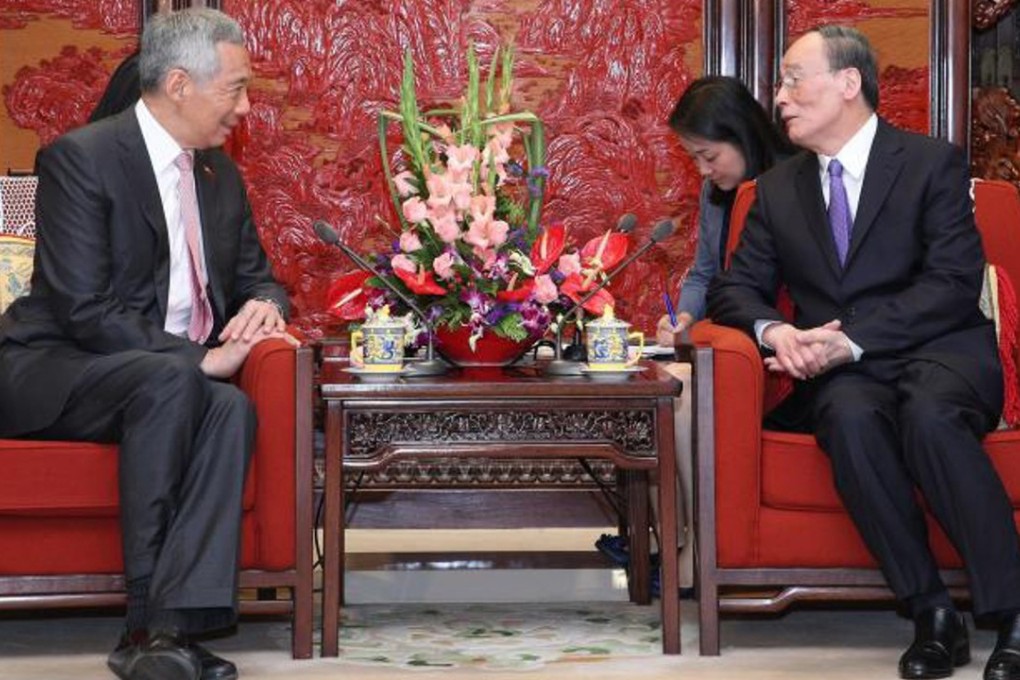Singapore PM Lee Hsien Loong in surprise meeting with China’s anti-graft tsar Wang Qishan
Observers say Lee was probably trying to get a sense of what’s going on in the Chinese leadership transition

Singapore’s Prime Minister Lee Hsien Loong found time to meet anti-graft tsar Wang Qishan on Wednesday during a hectic three-day visit to China – to the surprise of many China watchers and apparently even to Wang himself.
Lee is visiting the country ahead of its important Communist Party congress next month, when the leadership line-up will be decided along with the future of Wang, China’s second most powerful man.
Wang has passed the unofficial retirement age of 68 for Chinese leaders and there is now intense focus on whether he will retire or break with protocol and stay on for another term.
He told Lee he was “surprised” but “very happy” about Lee’s request to meet him, Singaporean Chinese-language newspaper Lianhe Zaobao reported on Wednesday.
“Singapore is among the countries I have the most contact with,” Wang told Lee, according to Today, another Singaporean newspaper.